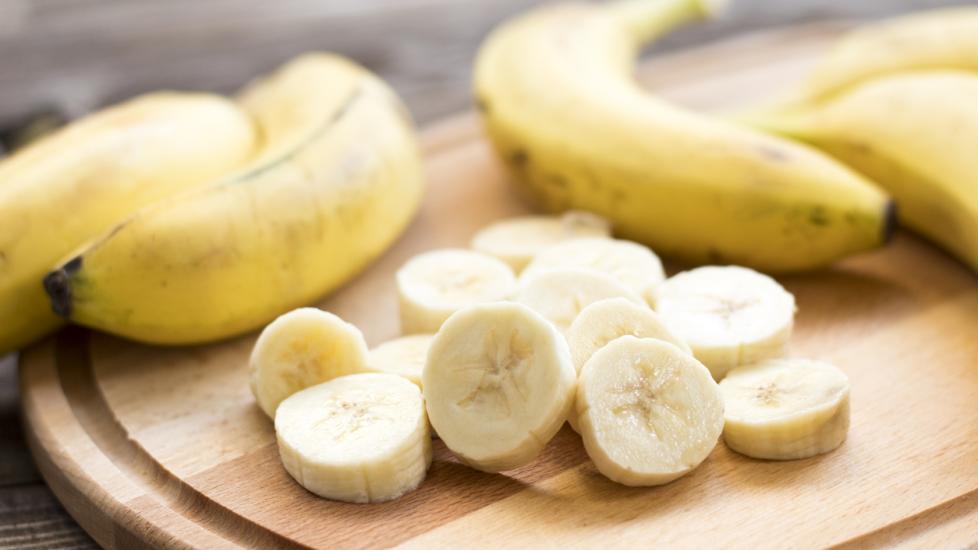Can Cats Eat Bananas?
NOTE: Always check with your veterinarian first before giving your cat any new foods, especially “people foods.” What might be okay for one cat might not be good for your cat, depending on multiple factors, such as their age, health history, health conditions, and diet. Cats on prescription diets should not be fed any food or treats outside the diet.
Many of us enjoy snacking on bananas, and they are a healthier choice than many other things that may be hiding in our cupboard. But you may be surprised if your cat starts begging to share your banana.
Is this healthy and safe for your kitty? And if yes, how much banana can you give your cat, and how often?
Are Bananas Safe for Cats?
The short answer is that bananas are safe for cats, although many other human foods can be toxic for animals, cats in particular.
However, just because bananas are considered safe doesn’t necessarily mean that they will be well-tolerated by your cat. Some cats will develop vomiting or diarrhea after eating anything out of the ordinary, especially a sugary, starchy food like bananas. The peel is also very indigestible and tough, making it a choking hazard. Cats should not be allowed to play with or eat the peel of the banana, but the fruit itself is considered safe.
The two exceptions to this rule are cats that are obese or have diabetes. Because bananas contain so much starchy sugar, eating some banana could easily contribute to obesity and upset the sugar regulation of a cat with diabetes.
If your chubby feline seems to have a sweet tooth and absolutely adores banana, it’s still probably best to avoid it.
Are Bananas Good for Cats?
There are no real health benefits of cats eating bananas. Cats are designed to be “obligate carnivores,” which means that the only foods they digest easily and well are meat-based.
Anything we give them that isn’t meat (such as a banana or carbohydrate-based cat foods) are much harder for their system to digest. As a result, some cats will show signs of this struggle through vomiting or diarrhea (or both!).
Although bananas contain fiber, magnesium, and potassium, which are great nutrients and minerals, this is far outweighed by the presence of a lot of carbohydrates. Cats digest carbs very poorly, and the high sugar load isn’t at all healthy for the average sedentary feline. So, although the occasional banana treat isn’t harmful for cats, it isn’t particularly helpful either.
Should I Let My Cat Eat Some Banana?
If kitty seems to like banana, should you share? And if you do, how much can they safely eat? Overall, no more than 10% of a cat’s daily calories should come from treats, and bananas are dense in calories.
A wise rule of thumb would be no more than a 1-inch square of banana every few weeks. Cut back on other carbohydrate-rich treats for the rest of that day to help balance things out.
So yes, go ahead and share if your cat really likes that banana, but do so sensibly, watch for signs of gastrointestinal problems, and be sure to account for the calories from the banana in your cat’s daily treat allowance.
Do Cats Like Bananas?
Cats don’t have a well-developed “sweet tooth,” so most do not seem to take a strong interest in eating bananas. This has now been formally documented in some studies showing that cats lack a receptor that even allows them to taste sweetness.
Some kitties, however, do seem to enjoy sweets and take a liking to the occasional banana. These cats may be attracted to something other than the taste, such as the texture or even the smell.
Is it possible that the wild ancestors of cats dined on bananas? While not impossible, it is unlikely. Bananas, as we know them, are highly developed and cultivated. In the days that the saber-toothed tiger roamed the earth, wild bananas were very different from the bananas of today, and they grew only in warm climates.
Additionally, wild animals tend to spend time and effort acquiring the foods that are most beneficial to them. And since cats are obligate carnivores, they likely devoted the vast majority of their time to hunting.
Of course, this isn’t to say that the occasional bored wild kitty didn’t decide to taste a banana, much like today’s house cats will sometimes test out a new human food before deciding to return to their cat food bowl.
Can Cats Be Allergic to Bananas?
Allergies develop from repeated exposure to an allergen over time. Since most cats consider bananas a “one and done” experience, they generally do not get the repeated exposure needed to have the chance to develop a true allergic reaction.
However, cats can have a food sensitivity, even from the first exposure, which can result in vomiting and diarrhea. In some cats, this can be quite intense. So, while it is unlikely your cat will have an allergic reaction to eating a banana, a gastrointestinal upset is certainly quite possible.
What If Your Cat Ate Some Banana?
If your cat has diabetes or any other chronic illness and eats some banana, call your vet right away.
If they are healthy and did snack on a banana, there’s most likely nothing to worry about. However, if they don’t seem to be their usual self, are generally lethargic, or develop signs of GI upset (especially vomiting, diarrhea, constipation, or loss of appetite), call your veterinarian.
Many foods that are healthy for humans are not wise choices for our furry companions. It’s probably best to save that banana slice for your breakfast or fruit smoothie rather than share it with your cat, who would find a small slice of chicken a much healthier and tastier snack!
Featured Image: iStock.com/Hazal Ak
